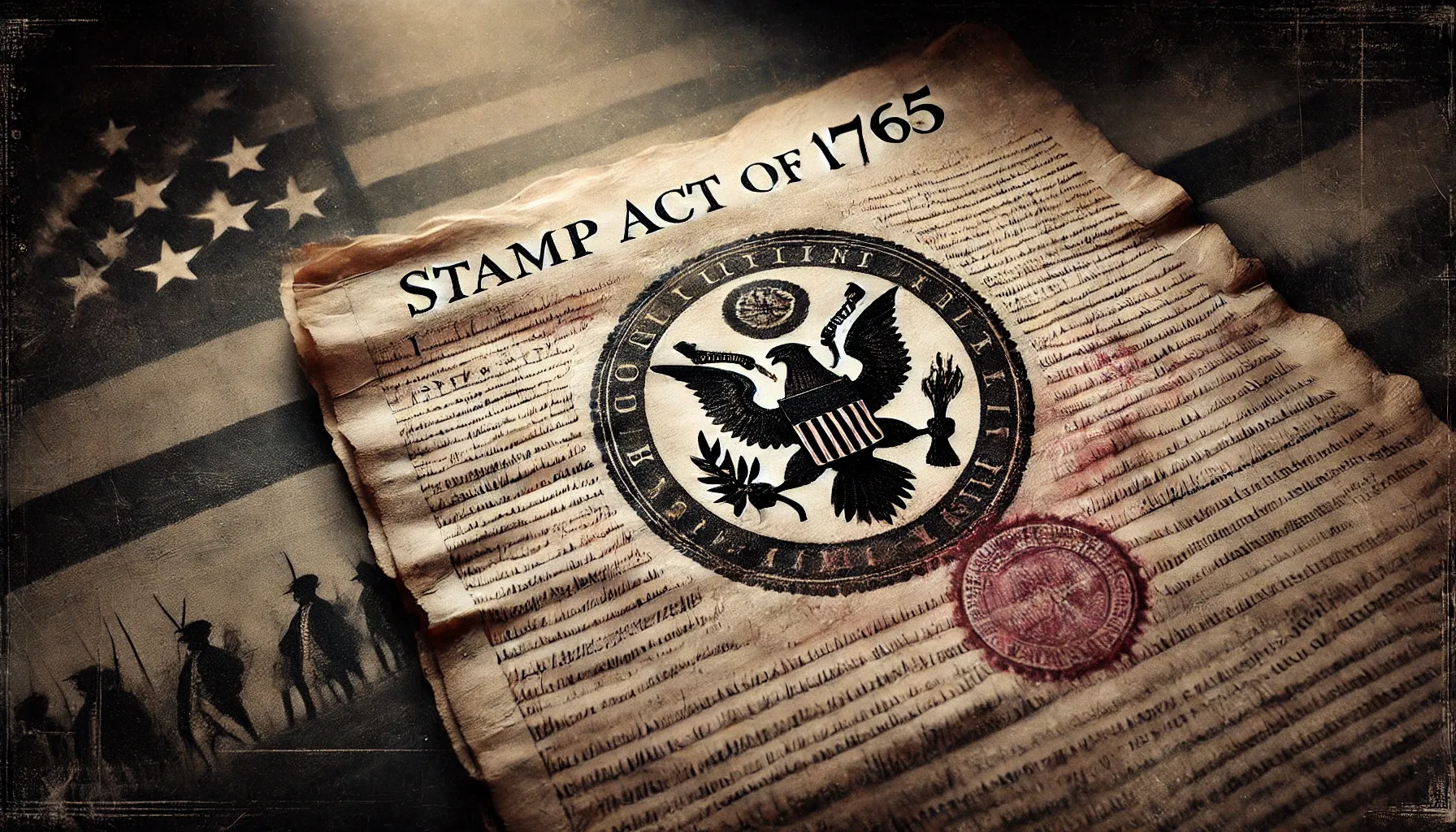UPSC
On This Day Today
The Stamp Act – 1765
Last Updated
22nd March, 2025
Date Published
21st March, 2025
Share This Post With Someone

Context:
This analysis details the British Parliament’s first direct tax on American colonies in 1765, aimed at funding defense post-French and Indian War. The Stamp Act sparked widespread unrest, shaping colonial unity and resistance, and offers insights into colonial governance, economic policies, and the prelude to the American Revolution, relevant as of March 22, 2025.
Crisp Information in Points:
- Legislation Overview: Passed on March 22, 1765, the Stamp Act imposed a direct tax on all colonial printed materials—legal documents, newspapers, pamphlets, cards, almanacs, and dice—effective November 1, 1765.
- Purpose: Aimed to raise revenue to offset Britain’s defense costs after the French and Indian War (1754–63) and Pontiac’s War (1763–64), targeting half the expenses via this tax and the Sugar Act (1764).
- Tax Mechanism: Required stamped paper from London with an embossed revenue stamp, payable in British sterling, not colonial currency, enforced by Vice-Admiralty Courts without juries.
- Colonial Reaction: Met with fierce opposition as an unconstitutional tax without colonial consent, violating the principle of “no taxation without representation” since colonists had no voice in Parliament.
- Protest Forms: Colonists boycotted stamps, rioted, burned stamps, and intimidated stamp agents; the Sons of Liberty, formed in 1765, led violent resistance, targeting wealthy elites and royal officials.
- Stamp Act Congress: In October 1765, nine colonies convened in New York, the first intercolonial meeting, drafting resolutions asserting taxation rights belonged to colonial assemblies, not Parliament.
- Key Figures: John Adams penned Braintree resolutions calling the tax burdensome and unconstitutional; merchants enforced nonimportation agreements, pressuring British trade.
- Repeal: Repealed in March 1766 due to colonial defiance and British merchants’ economic losses, though Parliament issued the Declaratory Act, asserting full legislative authority over colonies.
- Significance: Strengthened colonial unity, radicalized resistance (e.g., Sons of Liberty), and set a precedent for challenging British authority, fueling the American Revolution.
- India Connection: Offers lessons in colonial governance and resistance, paralleling India’s own struggles against British taxation and control during its colonial period.
Key Terms:
- Stamp Act: 1765 British law taxing colonial printed materials to fund defense.
- No Taxation Without Representation: Slogan asserting tax legitimacy requires elected consent.
- Sons of Liberty: Colonial group formed in 1765 to oppose the Stamp Act through protests.
- Stamp Act Congress: 1765 meeting of nine colonies to petition against the tax.
- French and Indian War: 1754–63 conflict increasing Britain’s colonial defense costs.
- Declaratory Act: 1766 law affirming Parliament’s authority over colonies post-repeal.
- Vice-Admiralty Courts: British courts without juries enforcing colonial tax laws.
Link To The Original Article – https://www.britannica.com/event/Stamp-Act-Great-Britain-1765